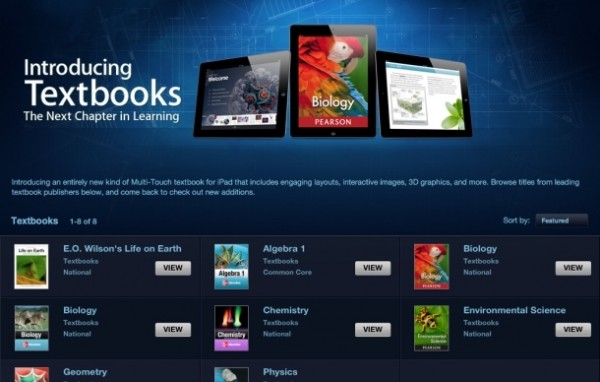Apple has announced their reentry into the education market by revealing iBooks 2 at a media event at the Guggenheim museum in New York City. Fueled by claims that there are 1.5 million iPads being used in education, Apple’s Phil Schiller feels that iBooks 2 will reinvent the textbook.
With iBooks 2, students will be able to interact with textbooks in a whole new way. Gestures like swipe and pinch-to-zoom will supplement 3D models and video clips within a book’s chapters. Users will have the ability to view content in portrait or landscape mode and even highlight text for note-taking or to make virtual flash cards. Always up-to-date content could potentially render traditional print textbooks obsolete even before they leave the printing press.

Apple has also launched a free Mac OS X application called iBooks Author to help developers create textbooks for iBooks 2. The app includes templates to aid in book creation as well as the ability to drag and drop images, videos and even Word files into a page.
Apple is initially partnering with publishers Houghton Mifflin Harcourt, McGraw Hill and Pearson who are responsible for 90 percent of all textbooks sold in the US. Individual textbooks are being priced at $14.99 or less – a far cry from the cost of many physical books that can easily command $100 or more per title (at the college level). Once a book has been digitally purchased, it can be redownloaded at no additional charge.
iBooks 2 is available for the iPad starting today through the App Store for free. The first series of textbooks online focus on math, science and other disciplines.
https://www.techspot.com/news/47106-apple-introduces-ibooks-2-textbooks-at-1499-or-less.html